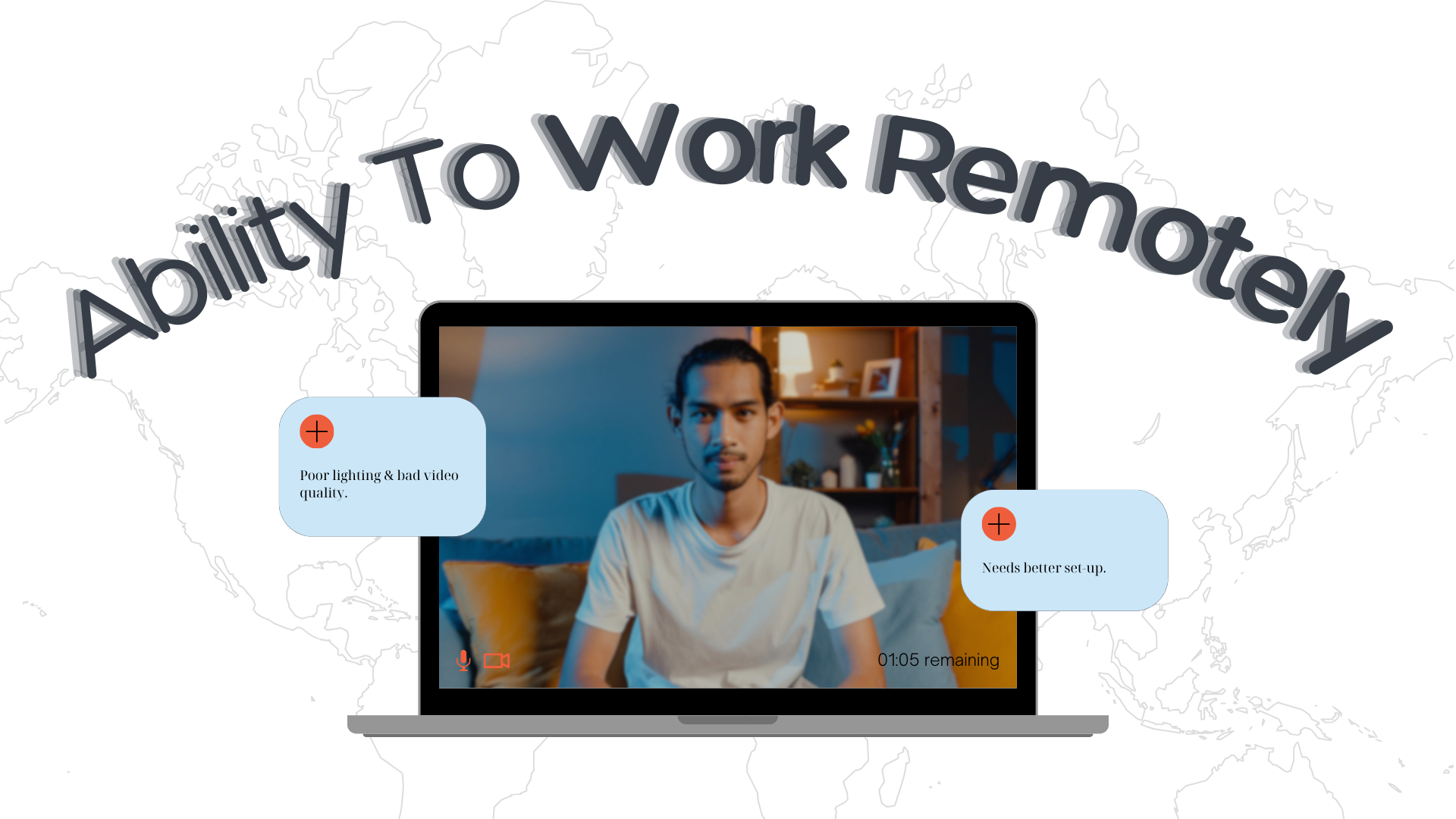We all know a CV can tell you a lot about an applicant’s skills, experience, and ‘claimed’ professional attitudes. But at the end of the day, it’s a flat piece of paper that doesn’t provide much insight into how a person communicates, presents themselves, and responds to various situations.
That’s why, by incorporating video responses (otherwise known as one-way interviews) into your job application forms, you can lift applicants out of their CVs and add that third dimension to the picture. And with web-based recruitment modules such as Martian Logic, you can incorporate a combination of fields into your application forms – everything from written responses and dropdown selections, all the way to value entries and video components. This simple integration is an effortless way to achieve a more comprehensive and in-depth understanding of applicants.
So, in today’s blog, we will uncover everything that video responses can tell you about job applicants. Join us as we explore how understanding this third dimension of candidates in the early stages of recruitment can empower you to make more informed hiring decisions right from the start.
1 – Insight Into Soft Skills

Personality & Cultural Fit
Video responses aren’t just used for assessing skills; they offer a glance into an applicant’s personality and how they might mesh with your team. And as every organisation is unique, what you look for in a potential employee may be completely different from what other companies value. Maybe you want someone with a good sense of humour, or perhaps someone that can inject a bit of enthusiasm and positivity into your workplace. So, depending on what you ask applicants during recruitment or how they respond to said questions, you can get a good idea of what they will be like on the job and whether they fit your requirements in terms of culture.
For example, if you’re looking to hire for a managerial role, some of the most important soft skills you should look for are the ability to inspire confidence and demonstrate strong interpersonal skills. Apart from listening to past experiences where applicants exhibited these abilities, the answer is also manifested in more subtle ways, such as maintaining excellent posture, radiating a warm and genuine smile, and employing enthusiastic gestures. The power of body language should never be underestimated and video responses serve as a valuable tool for uncovering these traits during the early stages of recruitment.
Initiative & Genuine Desire For The Position
Actions often speak louder than words and just taking initiative to record a video response alone demonstrates an applicant’s willingness to go beyond the conventional application, showcasing their motivation to apply for the role.
This is also an effective way to filter out candidates who might be mass-applying to multiple jobs without genuine interest in your organisation. Candidates who are enthusiastic about the prospect of working at your organisation are more likely to invest the time and effort needed for a video response. This not only ensures that you progress candidates who are truly motivated to apply, but also streamlines your recruitment process by allowing you to focus on those who are the best fit for your organisation.
Level of Preparation
How prepared an applicant is for an interview can demonstrate their dedication and work ethic. By introducing video responses to your application process, you can identify individuals who have taken the time to thoroughly review your job description and research your organisation. And what you can understand from this level of preparation extends beyond the initial application phase. It offers insights into how candidates will approach tasks and projects in the workplace. Those who invest time and effort into preparing for the application process may be more likely to demonstrate strong work ethic and diligence in their future roles. So, by leveraging video responses to assess this aspect, you can identify candidates who are not only well-prepared, but are also likely to excel in your organisation.
Professionalism
Professionalism is crucial, especially for client-facing roles such as sales representatives, guest relations officers, hotel receptionists, and so on. It refers to the way in which employees carry themselves, and how they communicate with their co-workers and clients. And when reviewing video responses, you can ask yourself questions like: Do they dress appropriately? Or is their background suitable?
Evaluate their verbal communication – clear and articulate speech, good eye contact with the camera. By paying attention to things like appearance, environment, and body language, recruiters can gain early insights into the level of professionalism that applicants possess.
How Applicants Think
By posing open-ended questions in video responses, you can delve into a candidate’s thought process and personal values. Questions like “what are your greatest strengths and weaknesses?” or “how would you handle working with someone you don’t get along with?” can reveal how candidates think and what they value the most. Understanding what candidates prioritise helps you identify the unique qualities they will bring to the table, making it easier to assess their potential fit within your team and company.
2 – Confirmation of CV Skills

A candidate’s CV may boast various skills and qualifications, but video responses provide an opportunity to verify and confirm these claims. For instance, if a candidate mentions proficiency in Mandarin on their CV, you can evaluate this assertion by observing how effectively they express themselves in that language during video responses. This extends beyond the confines of written documents, providing you with direct insight into their communication skills and confidence levels. Offering a practical means to ensure that the skills and competencies mentioned on resumes align with the candidate’s actual abilities, video responses can help you make more informed hiring decisions.
3 – Ability To Work Remotely

In today’s evolving business landscape, remote work is becoming increasingly common. And it isn’t just about sending emails from the comfort of your own home; it’s about clear and effective communication, especially when you’re not in the same room. When recruiting for a flexible role, it’s important to ask yourself: Does this candidate have the right lighting for client meetings? Do they have a stable Wi-Fi connection? Are they adept at communicating during virtual team discussions?
Video responses shed light on a candidate’s suitability for remote work. The quality of their technology setup (including audio and video quality) and how well they can communicate from their chosen location reveal their capacity for virtual interactions. By assessing these aspects, you can determine if the candidate is well-prepared for the remote or hybrid position you are advertising.
Key Takeaways

Traditional CVs often fall short in revealing critical qualities beyond skills and experience. Video responses offer a third-dimension into candidate assessments, offering insights into soft skills, cultural fit, and enthusiasm for your organisation. They showcase candidates’ initiative and willingness to go beyond standard applications, helping identify those genuinely interested in your role. Video responses also allow you to assess cultural fit and professionalism, through soft skills, appearance, and communication. And to add depth in a more technical sense, they serve as a means to verify CV claims, ensuring alignment with actual abilities, and shed light on a candidate’s suitability for remote and hybrid work.
By embracing video responses, you gain a comprehensive view of applicants, empowering more informed and holistic hiring decisions from the get-go. And there are many tools available, such as Martian Logic, that allow you to do this with ease and efficiency. So, introduce video responses early on in your recruitment process and take the step towards stronger team dynamics and better hiring decisions!

